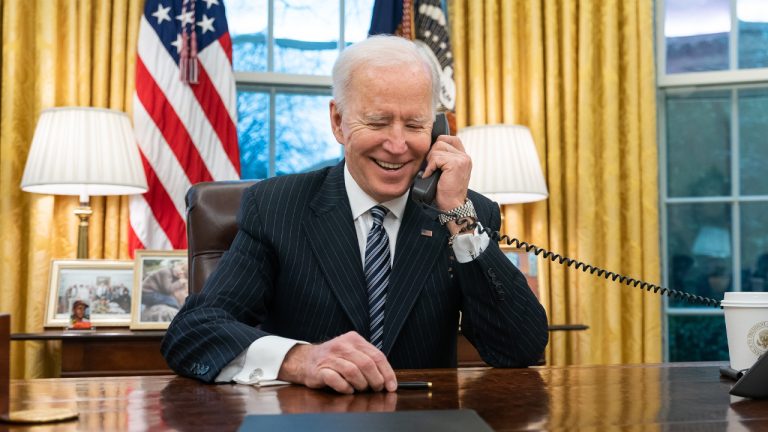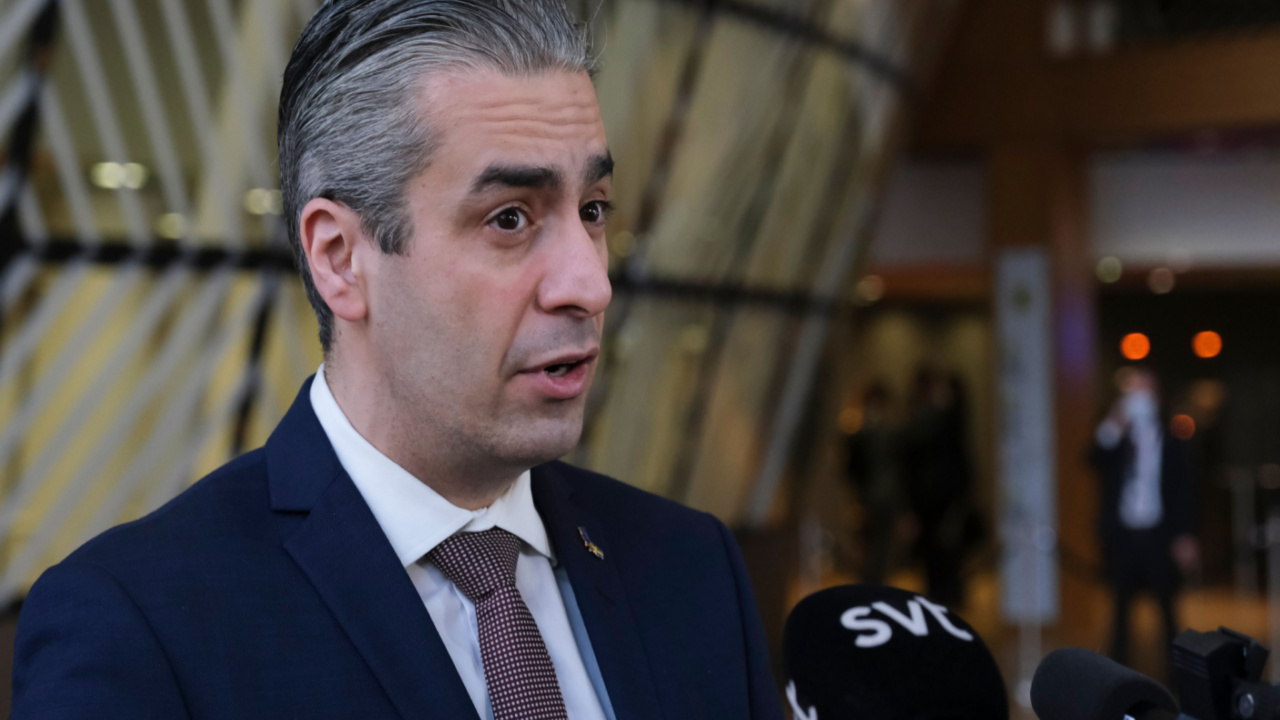 Coral, a climate tech startup leveraging blockchain and AI, has secured $3 million in pre-seed funding to expand its operations and enhance its carbon emissions management platform. The funding will enable Coral to open a new office in Abu Dhabi, hire more experts, and improve its AI-powered platform. ‘Full Lifecycle’ Traceability of Carbon Credits Coral, […]
Coral, a climate tech startup leveraging blockchain and AI, has secured $3 million in pre-seed funding to expand its operations and enhance its carbon emissions management platform. The funding will enable Coral to open a new office in Abu Dhabi, hire more experts, and improve its AI-powered platform. ‘Full Lifecycle’ Traceability of Carbon Credits Coral, […] Paraguay, one of the smallest countries in Latam, has the conditions needed to become the next Bitcoin mining hub in the region, according to mining insight group Hashrate Index. The company notes there are many elements in favor of Paraguay, including the abundance of clean hydroelectric power sources. However, the stance that the government has […]
Paraguay, one of the smallest countries in Latam, has the conditions needed to become the next Bitcoin mining hub in the region, according to mining insight group Hashrate Index. The company notes there are many elements in favor of Paraguay, including the abundance of clean hydroelectric power sources. However, the stance that the government has […] The Microstrategy executive Michael Saylor is a big believer in Bitcoin as his company has purchased close to 130,000 bitcoin during the last few years. Six days ago, the U.S. Office of Science and Technology Policy published a report that claims proof-of-work mining operations have been affecting climate change. The science and tech department believes […]
The Microstrategy executive Michael Saylor is a big believer in Bitcoin as his company has purchased close to 130,000 bitcoin during the last few years. Six days ago, the U.S. Office of Science and Technology Policy published a report that claims proof-of-work mining operations have been affecting climate change. The science and tech department believes […] The Biden administration is concerned about digital currency mining operations affecting climate change, after the U.S. Office of Science and Technology Policy published a report that says politicians should take action against crypto mining. The federal government’s entity recommends the Biden administration should encourage more research about mining’s electricity consumption and codify public policy for […]
The Biden administration is concerned about digital currency mining operations affecting climate change, after the U.S. Office of Science and Technology Policy published a report that says politicians should take action against crypto mining. The federal government’s entity recommends the Biden administration should encourage more research about mining’s electricity consumption and codify public policy for […] According to the French politician currently serving as the president of the European Central Bank (ECB), Christine Lagarde, Europe’s scorching hot inflation can be blamed on climate change. During her interview with Madame Figaro, Lagarde stressed that people need to take into account that “climate disasters” affect price stability a great deal. ECB Board Member […]
According to the French politician currently serving as the president of the European Central Bank (ECB), Christine Lagarde, Europe’s scorching hot inflation can be blamed on climate change. During her interview with Madame Figaro, Lagarde stressed that people need to take into account that “climate disasters” affect price stability a great deal. ECB Board Member […] Concerned about projected increase in electricity demand, the government in Sweden may turn its back on crypto mining, the country’s energy minister has indicated. Swedish bitcoin minting industry, a leader in Europe, is likely to soon lose the preferential treatment it has been taking advantage of for some time, a media report revealed. Crypto Miners […]
Concerned about projected increase in electricity demand, the government in Sweden may turn its back on crypto mining, the country’s energy minister has indicated. Swedish bitcoin minting industry, a leader in Europe, is likely to soon lose the preferential treatment it has been taking advantage of for some time, a media report revealed. Crypto Miners […]
Coworking space founder and billionaire Adam Neumann is trying his hand in the crypto space, raising $70 million for his blockchain-powered climate tech platform Flowcarbon.
Three years after being ousted as CEO of WeWork, Adam Neumann has jumped on the crypto bandwagon, raising $70 million in the first major funding round for his climate tech venture Flowcarbon.
The project aims to make carbon trading more accessible by putting carbon credits on the blockchain.
Neumann is an Israeli-American businessman and investor famous for his role in founding coworking space provider WeWork in 2010, a company once heralded as the future of work spaces.
However, it all came crashing down in 2019 when the company attempted to go public, which instead lifted the lid on WeWork’s unprofitable business model and questionable leadership antics. The company went from being privately-valued at $47 billion in August 2019 to talk of filing for bankruptcy just six weeks after, with Neumann pressured to step down as CEO.
Adam and his wife, Rebekah Neumann have been listed as co-founders of Flowcarbon, along with CEO Dana Gibber, and COO Caroline Klatt — both of whom are co-founders of Headliner Labs, a company building AI-powered chatbots for major media brands. Ilan Stern, another co-founder of Flowcarbon, heads up Neumann’s own family office.
According to Flowcarbon, the recent funding round includes $32 million in funding from Silicon Valley investors Marc Andreessen and Ben Horowitz through their a16z crypto venture capital firm. Other investors include General Catalyst and Samsung Next.
Another $38 million was raised in a token-sale of Flowcarbon’s first carbon-backed token, the Goddess Nature Token (GNT).
The company describes itself as a pioneering climate technology company working to build market infrastructure in the voluntary carbon market (VCM). Through the tokenization of carbon credits on the Celo blockchain, Flowcarbon wants to make the purchase, selling and trading of carbon credits more accessible and efficient than the current carbon markets.
We highlighted @weareflowcarbon in last week's State of Crypto report as a prime example of web3 companies making a positive impact.
— cdixon.eth (@cdixon) May 24, 2022
Flowcarbon's marketplace is funding projects that reduce or remove carbon from the atmosphere.https://t.co/yntqLkCUdp
Carbon trading is a market-based system designed to reduce greenhouse gas emissions that contribute to global warming.
Businesses that produce carbon-emissions can buy carbon credits to offset them from projects that remove or reduce greenhouse gases from the atmosphere, such as reforestation projects.
Related: WEF 2022: Trust and clarity are missing in discussions of carbon emissions and crypto
However, Flowcarbon argues that the voluntary carbon market is currently “inefficient, opaque, and inaccessible,” with brokers and consultants charging up to 20 percent in fees, many deals done behind closed doors and inconsistent pricing for carbon credit depending on the buyer.
Enter Flowcarbon, which will enable anyone to tokenize their certified off-chain carbon credits, unlocking a new economic flywheel for sustainability.
— AriannaSimpson.eth (@AriannaSimpson) May 24, 2022
Flowcarbon’s solution to the voluntary carbon market is not unique. Other projects aimed at facilitating the buying and selling of tokenized carbon credits include Toucan Protocol, JustCarbon and Likvidi.
Arianna Simpson, General Partner at a16z said it was an obvious area that could benefit from blockchain tech.
“The carbon market is extremely opaque and we believe demand for offsets is rapidly outpacing the speed at which supply can be increased, especially for nature-based projects. Tokenization is an obvious solution.”

Taking the stage at the MENA Climate Week, Kristina Cornèr, the editor-in-chief of Cointelegraph, shared insights into how the crypto community could contribute to positive climate impact.
MENA Climate Week kicked off on Tuesday with a focus on discussing the use of blockchain technology for bringing transformative climate action to the region. Kristina Cornèr, Cointelegraph’s editor-in-chief, shared her insights in a panel discussion on how the climate action sector can benefit from the crypto and blockchain community.
In the session held in Dubai, United Arab Emirates, Cornèr discussed topics ranging from the media’s role in educating the masses about blockchain to trust and collaboration within blockchain projects and how the climate action community could use the blockchain community’s strengths such as ambition, action and diversity to promote a positive environmental impact.

Explaining the mindset that the crypto community has when creating blockchain projects, Cornèr highlighted that ambition and action are some of the most important driving forces within natives of the blockchain sphere.
“The people who created this community are ones who are daring and ambitious, and I think that this is what climate action needs now. Shifting discussions from "what can we do" to "let’s do it" is how the blockchain community members are building their projects.”
Related: Crypto sustainability and green solutions highlighted at COP26
Apart from this, Cornèr also noted the importance of bringing diversity into the mix. She said that by being diverse, blockchain projects are able to come up with a variety of new solutions that can create various levels of change within the community.
“Collaboration is bringing as many voices as possible, similar to this panel and how you are bringing diversity here. This is what blockchain is also about because you can bring different voices and this can bring different solutions.”
Cornèr concluded her talk by reiterating that the Cointelegraph team is always open to giving a voice and a platform to those who are working within the blockchain and climate action space and that she hopes that both communities will have more collaborations in the future.

PlanetWatch has been tapped to deploy a network of air quality sensors around the city to monitor the concentration of air pollution.
Miami is preparing to be one of the first major US cities to monitor its air quality using a decentralized Internet of Things (IoT) network built on Algorand.
French environmental technology company Planetwatch has developed five different types of air quality sensors. With funding from Borderless Capital’s $10 million PLANETS fund, sensors will be deployed throughout the city, including in the homes of city residents.
Each sensor detects the concentration of air pollution in an area. When combined into a network, they will help residents and city officials analyze where higher levels of pollution exist. Data collected by the sensors will be recorded on the Algorand blockchain making it tamper-proof and permanent.
Miami Mayor Francis Suarez has been a long-time advocate for the use of blockchain technology. He said at the DeCipher event in Miami on Nov. 29:
“The data from this project will play a crucial role in our climate adaptation efforts as well as our ambitions to make Miami an epicentre for digital capital markets.”
Residents who agree to run a sensor in their home will be rewarded with Planet Tokens (Planets). Planets can be sold for fiat in the open market or be exchanged for Earth Credits. Earth Credits are non-exchangeable tokens which PlanetWatch uses as internal currency for its products and services.
Related: DAOs empower social good with yield-generating DeFi products
Algorand is a carbon negative blockchain. Algorand also recently gained $1.5 billion in funding from former Citi executive Matt Zhang.
 The government in Norway is considering ways to limit the environmental impact of cryptocurrency mining and may support Swedish proposals to that end, including a European ban on proof-of-work mining. The European Commission has revealed it is already working to promote a transition to “more sustainable” protocols. Extensive Use of Renewable Energy for Mining Is […]
The government in Norway is considering ways to limit the environmental impact of cryptocurrency mining and may support Swedish proposals to that end, including a European ban on proof-of-work mining. The European Commission has revealed it is already working to promote a transition to “more sustainable” protocols. Extensive Use of Renewable Energy for Mining Is […]